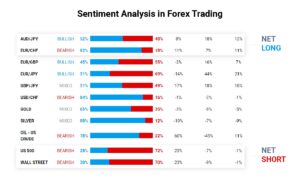The foreign exchange market, also known as forex, is a dynamic and ever-changing landscape. While technical and fundamental analysis are crucial for success, there’s another significant factor that can make or break a trader: emotions.
Our emotions play a powerful role in our decision-making, and forex trading is no exception. Understanding how emotions influence our trading behavior and developing strategies to manage them effectively is essential for long-term success.
The Emotional Rollercoaster of Forex Trading
Forex trading can be an emotionally charged experience. The potential for significant profits can lead to excitement and greed, while losses can trigger fear, frustration, and anger. These emotions can cloud judgment, leading to impulsive decisions that deviate from a well-defined trading plan.
Here’s a closer look at some of the most common emotions forex traders experience and their potential impact:
- Fear: Fear of missing out (FOMO) can lead to entering trades hastily without proper analysis. Conversely, fear of losing can cause premature exits from profitable positions.
- Greed: The desire for quick profits can tempt traders to hold onto losing positions for too long or overextend their leverage, increasing risk exposure.
- Excitement: A winning streak can fuel overconfidence, leading to taking unnecessary risks and neglecting risk management practices.
- Frustration: Losses and setbacks can lead to frustration, causing traders to abandon their strategy and make emotional decisions.
These are just a few examples, and the emotional experience can vary depending on individual personalities and trading styles. However, the key takeaway is that unmanaged emotions can be detrimental to trading success.
Why Managing Emotions is Crucial
The fast-paced nature of forex trading can exacerbate emotional responses. Unlike long-term investments, where fluctuations may be less frequent, forex traders are constantly bombarded with real-time market movements. This can lead to a heightened emotional state, making it even more important to have control mechanisms in place.
Here’s how managing emotions can benefit forex traders:
- Improved Decision-Making: By staying calm and collected, traders can make rational decisions based on their analysis, not emotional impulses.
- Reduced Risk: Emotional control allows traders to stick to their stop-loss orders and avoid holding onto losing positions due to fear.
- Enhanced Discipline: Following a well-defined trading plan is easier when emotions are in check.
- Increased Confidence: Successfully managing emotions can boost a trader’s confidence and overall trading experience.
Strategies for Effective Emotional Management
Taming the emotional beast within requires a proactive approach. Here are some strategies forex traders can implement to manage their emotions effectively:
- Develop a Trading Plan: Having a predefined strategy that outlines entry and exit points, risk management parameters, and position sizing helps reduce emotional decision-making.
- Acknowledge Your Emotions: The first step to managing emotions is recognizing them. Pay attention to how you feel before, during, and after trades. Journaling your thoughts and emotions can be a helpful tool for self-awareness.
- Practice Mindfulness: Techniques like meditation and deep breathing exercises can help calm the mind and promote emotional regulation.
- Maintain a Trading Log: A trading log allows you to track your performance and identify any emotional patterns influencing your trades. Analyzing past experiences can help you learn from mistakes and develop coping mechanisms.
- Limit Screen Time: Constant monitoring of the market can lead to emotional overload. Take breaks from trading to clear your head and come back refreshed.
- Maintain a Healthy Lifestyle: Getting enough sleep, eating nutritious foods, and exercising regularly contribute to overall well-being and emotional resilience.
- Seek Support: Talking to experienced traders or a therapist specializing in trading psychology can provide valuable insights and support.
Building Emotional Intelligence
Emotional intelligence, the ability to understand, use, and manage your own emotions in positive ways, is a valuable skill for any trader. By implementing the strategies mentioned above, you can cultivate emotional intelligence and become a more composed and effective trader.
Remember, managing emotions is an ongoing process. There will be times when emotions get the better of you. However, with consistent practice and self-reflection, you can develop the emotional intelligence needed to navigate the ever-changing world of forex trading and achieve long-term success.
Additional Tips:
- Visualize Success: Regularly picturing yourself achieving your trading goals can boost confidence and motivation.
- Reward Yourself: Celebrate your achievements, both big and small, to reinforce positive trading behaviors.
- Focus on the Process, Not the Outcome: Focusing on following your trading plan and risk management strategies, rather than obsessing over every win or loss, can reduce emotional volatility.
By mastering your emotions and developing a disciplined approach, you can transform yourself from a reactive trader to a proactive one, increasing your chances of success in the competitive world of forex trading.
Remember: Forex trading involves inherent risks, and success is not guaranteed. However, by understanding the role of emotions and actively managing them, you can significantly improve your chances of achieving your financial goals in the forex market.
Let’s Manage Your Forex Funds With Fx Pips Guru!
Fx Pips Guru is a forex fund management company managing client’s funds based on monthly profit share. Let’s do Live Chat with our experts.




